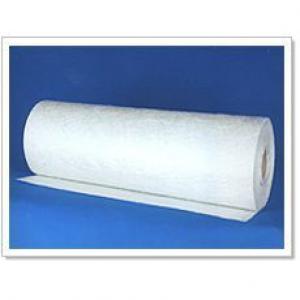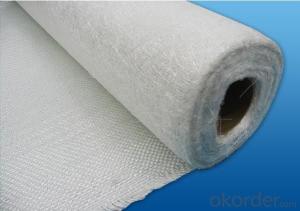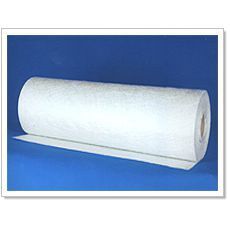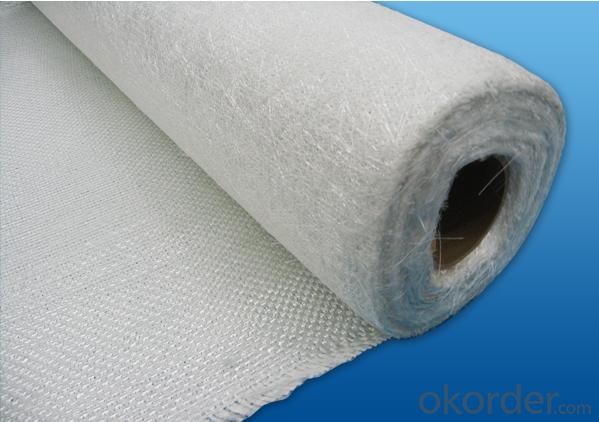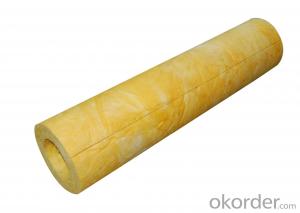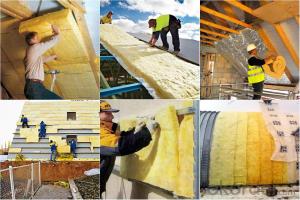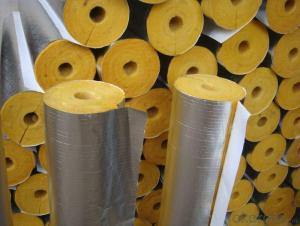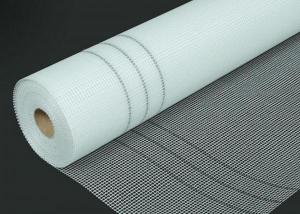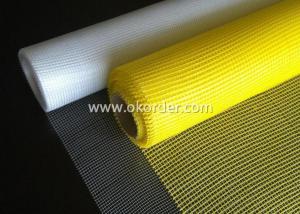FIBERGLASS WOVEN ROVING COMNO MAT 800g 200~2600mm
OKorder Service Pledge
OKorder Financial Service
You Might Also Like
Description & application | |||||||||||||||||||||||||||||||||||||||
◎ This mat is a combination of woven roving and chopped glass fiber. The layer of chopped strand is stitched together with woven roving by polyester thread. It is mainly applied in the processes of molding compressing, pultrusion, RTM, filament winding etc.. | |||||||||||||||||||||||||||||||||||||||
| |||||||||||||||||||||||||||||||||||||||
◎ Increase strength, reduce product weight and better surface finish. | |||||||||||||||||||||||||||||||||||||||
| |||||||||||||||||||||||||||||||||||||||
| |||||||||||||||||||||||||||||||||||||||
| |||||||||||||||||||||||||||||||||||||||
Each roll is wrapped by PE film and then packed into carton. Stacking in bulk or palletized is available; the pallet shall be no higher than 2 layers. | |||||||||||||||||||||||||||||||||||||||
- Q:How does fiberglass mat tissue perform in terms of moisture resistance?
- Fiberglass mat tissue is known for its excellent moisture resistance properties. The material is made up of tightly woven fiberglass strands, which create a barrier against moisture penetration. This makes it highly effective in preventing water or moisture from seeping through and damaging underlying surfaces or structures. Additionally, the resin used to bind the fiberglass strands together also adds an extra layer of protection against moisture, making it even more resistant to water and humidity. Overall, fiberglass mat tissue is a reliable choice when it comes to moisture resistance, making it suitable for various applications where preventing water damage is crucial.
- Q:Can fiberglass mat tissue be used for waterproofing?
- Yes, fiberglass mat tissue can be used for waterproofing. Fiberglass mat tissue is a thin, non-woven material that is made from fiberglass fibers. It is commonly used in construction and building applications to provide reinforcement and waterproofing properties. When applied with a waterproofing agent or resin, the fiberglass mat tissue can create a waterproof barrier that helps to prevent the passage of water or moisture. This makes it an effective choice for applications such as roofing, basement waterproofing, and bathroom or shower installations. The strength and durability of fiberglass mat tissue also make it resistant to cracking or tearing, ensuring long-lasting waterproofing protection.
- Q:Does fiberglass mat tissue provide good acoustical performance?
- Yes, fiberglass mat tissue does provide good acoustical performance. It has excellent sound absorption properties due to its fibrous composition, which helps reduce echo and improve overall sound quality in a given space.
- Q:Is fiberglass mat tissue resistant to pests and insects?
- Fiberglass mat tissue is generally not resistant to pests and insects. While fiberglass itself is not a food source for pests, the binders and resins used in the manufacturing process may attract certain insects. Additionally, small cracks or gaps in the fiberglass can provide entry points for pests. However, fiberglass mat tissue can be treated with specific chemicals or coatings to make it more resistant to pests and insects. It is recommended to consult with a professional or manufacturer to determine the best approach for pest and insect resistance in fiberglass mat tissue.
- Q:Is fiberglass mat tissue easy to install?
- Installing fiberglass mat tissue is relatively easy. This lightweight and flexible material can be easily cut and shaped to fit any surface. It can be applied using different methods, including spraying, rolling, or brushing on adhesive. Moreover, the tissue is self-adhesive, which simplifies the installation process as it readily adheres to the desired surface. Additionally, fiberglass mat tissues are generally designed to resist water and offer excellent insulation, making them a favored choice for various applications. In conclusion, by adequately preparing and following the manufacturer's guidelines, installing fiberglass mat tissue can be a simple and trouble-free task.
- Q:Is fiberglass mat tissue suitable for insulation in sports facilities?
- Fiberglass mat tissue is indeed suitable for insulation in sports facilities. Fiberglass is a commonly used material for insulation due to its excellent thermal properties and fire resistance. It provides effective insulation, keeping the indoor environment comfortable by reducing heat loss or gain. Additionally, fiberglass insulation is lightweight, durable, and easy to install, making it ideal for sports facilities where large areas need to be insulated. It is also resistant to moisture and does not promote the growth of mold or mildew, ensuring a healthy and hygienic environment. Overall, fiberglass mat tissue is a reliable and efficient option for insulation in sports facilities.
- Q:What are the different finishing options available for fiberglass mat tissue?
- Fiberglass mat tissue offers a variety of finishing options to meet specific needs. One popular choice is applying a resin coating, which protects and strengthens the fibers while giving the material a smooth and glossy look. Another option is a fire-retardant treatment, which involves applying a special chemical to reduce flammability. This is crucial for industries where fire safety is a concern, like construction. Color customization is also possible by adding dye or pigment during manufacturing. This allows for a wide range of visually appealing options. For a more tactile and aesthetically pleasing product, a textured finish can be applied to the surface. This is useful in applications requiring grip or slip resistance. Lastly, a laminated backing can be used to bond the fiberglass mat tissue to materials like foam or fabric, adding strength and flexibility. In summary, fiberglass mat tissue offers various finishing options to enhance its performance and appearance in different industries. The ability to customize strength, fire resistance, color, texture, and backing makes it a versatile choice.
- Q:What is the maximum temperature that fiberglass mat tissue can withstand?
- The specific type of fiberglass material being utilized determines the maximum temperature that fiberglass mat tissue can endure. Typically, fiberglass mat tissues are engineered to withstand temperatures of up to 600 degrees Fahrenheit (315 degrees Celsius). Nevertheless, it should be emphasized that the temperature resistance may fluctuate due to various factors, including material thickness, manufacturing techniques, and the intended usage. For precise information regarding the maximum temperature tolerance of a specific fiberglass mat tissue, it is advised to refer to the manufacturer's specifications or technical data sheets.
- Q:Is fiberglass mat tissue suitable for electrical insulation applications?
- Yes, fiberglass mat tissue is suitable for electrical insulation applications. It possesses excellent dielectric properties, high tensile strength, and thermal resistance, making it an ideal material for insulating electrical components and preventing electrical current leakage.
- Q:Is fiberglass mat tissue resistant to mold growth?
- Yes, fiberglass mat tissue is resistant to mold growth. Fiberglass is made from glass fibers that are tightly woven together, creating a material that is highly resistant to moisture and mold. Additionally, fiberglass is non-porous, meaning it does not absorb water, which further inhibits the growth of mold. This makes fiberglass mat tissue an ideal choice for applications where mold resistance is important, such as in insulation, wallboards, and other construction materials.
1. Manufacturer Overview |
|
|---|---|
| Location | |
| Year Established | |
| Annual Output Value | |
| Main Markets | |
| Company Certifications | |
2. Manufacturer Certificates |
|
|---|---|
| a) Certification Name | |
| Range | |
| Reference | |
| Validity Period | |
3. Manufacturer Capability |
|
|---|---|
| a)Trade Capacity | |
| Nearest Port | |
| Export Percentage | |
| No.of Employees in Trade Department | |
| Language Spoken: | |
| b)Factory Information | |
| Factory Size: | |
| No. of Production Lines | |
| Contract Manufacturing | |
| Product Price Range | |
Send your message to us
FIBERGLASS WOVEN ROVING COMNO MAT 800g 200~2600mm
OKorder Service Pledge
OKorder Financial Service
Similar products
New products
Hot products
Hot Searches
Related keywords
